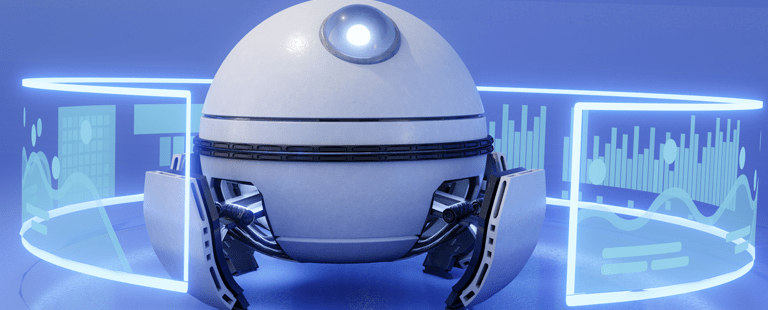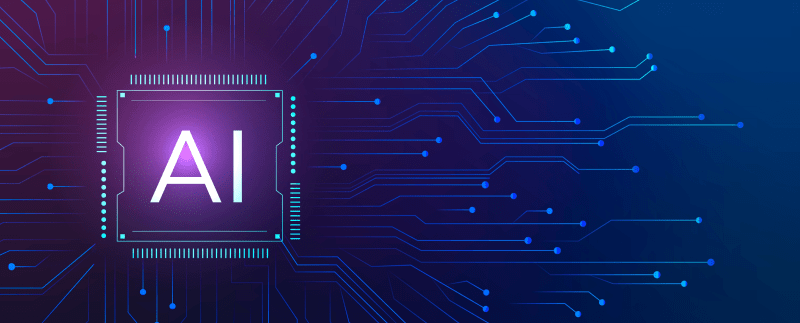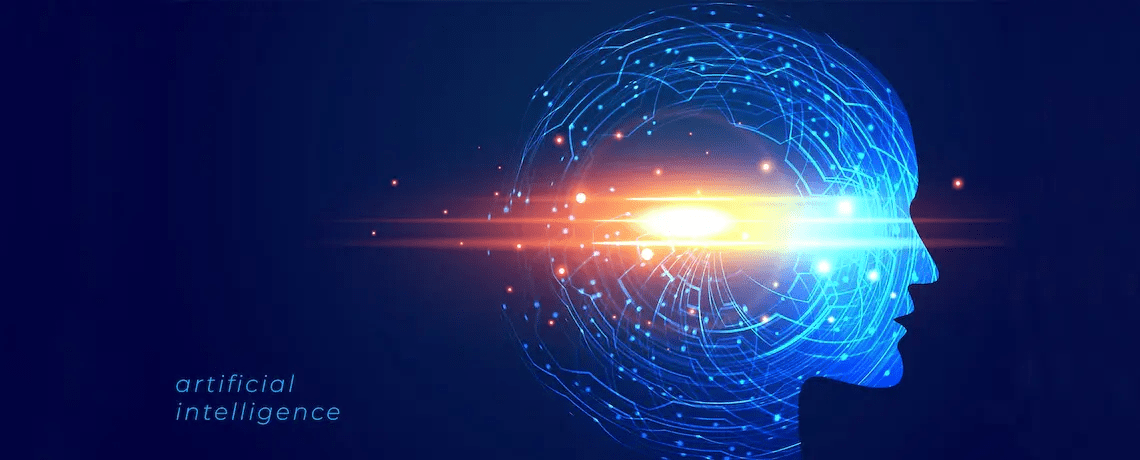Exploring the Future of Biotechnology: Emerging Trends and Technologies

Biotechnology has never been just about lab coats and test tubes. It has always been about solving real problems: from feeding a growing population to rewriting the playbook on how we fight disease.
The first wave gave us genetically modified crops and life-saving insulin. The second brought regenerative medicine and the early promise of gene editing. Today, biotechnology sits at the core of the world’s most complex questions: climate resilience, precision healthcare, sustainable energy and food security.
According to a press release of PIB, India’s bioeconomy was just $10 billion in 2014, became $165.7 billion in 2024 and is expected to reach $300 billion by 2030, with a 17.9% growth. It is now contributing 4.25% to GDP.
As the biotechnology scope widens, so does its impact across industry, academia, policy and job creation. What used to be a niche has now become central to how the world thinks about health, food and the environment. In short, the scope of biotechnology is no longer a question. It’s a statement of fact.
What Makes Biotechnology the Career of Tomorrow
Biotechnology offers more than lab work. It connects science with industry, data, business and innovation. It builds careers across medicine, agriculture, environmental science and industrial processes.
Here’s what makes the biotechnology scope promising:
- High demand for jobs in pharma, diagnostics, agriculture, healthcare and R&D
- Government push through policies like BIO-E3 (Biotechnology for Economy, Employment and Environment)
- Growing exports of biotech-based vaccines and medicines
- Cross-disciplinary skills connecting life sciences with AI, data and engineering
India’s Role in the Global Biotechnology Race
India isn’t just catching up, it’s leading and shaping the race of bioeconomy. Union Minister Dr. Jitendra Singh called 2025 the year India takes a central role in global biotechnology.
- 60% of global vaccine production happens in India (PIB)
- Home to the second-highest number of USFDA-approved plants outside the US
- Pioneer in creating indigenous DNA-based vaccines and new gene therapies
- 9 DBT-supported biotech parks and 73 BIRAC-supported bio-incubators
- India had 3,500+ biotech startups in 2021, and this is projected to rise to 10,000+ by 2024-25
- The BIRAC has lent funding support of over 2,128 crore rupees to more than 1,500 Startups.
- India’s biotech industry ranks third in Asia and among the top 12 globally.
On 24th August 2024, the Government of India launched BIO-E3, India’s first Policy in Biotechnology, to connect biotech directly with the economy, jobs and sustainability. This has boosted startups working on sustainable dairy, bioenergy and drug development.
The future of biotechnology is also linked to education. Indian universities now embed biotech with AI, bioinformatics and sustainability in their curriculum: exactly what’s needed to prepare the next wave of professionals. The country’s deep natural resources and talent pool make it ideal for research in crops, climate resilience, genetic disease and more.
Breakthrough Technologies Reshaping Biotech’s Future
Today’s biotechnology trends are no longer just lab stories; they are national strategies and global headlines. Here are the big developments:
Gene Therapy
- Focuses on curing diseases by correcting genes
- In 2023, CRISPR-based therapy Casgevy was approved for sickle cell and thalassemia (Labiotech, 2025)
- Targets now include cardiovascular and metabolic disorders
Artificial Intelligence in Drug Discovery
- Speeds up new drug development
- Used for predicting protein structures and drug interactions
- Companies like DeepMind and Insilico Medicine lead the space
Precision Medicine
- Customises treatment to individual genetic profiles
- Gaining pace in oncology and rare disease treatment
- Supported by advances in genome sequencing and diagnostics
Sustainable Biotech
- In agriculture: biotech crops reduce fertiliser and water needs
- In energy: biotech enables cleaner biofuels and methane recovery
- In environment: tech cleans up pollutants, wastewater and industrial waste
Breakthroughs like CRISPR, AI, gene editing and AI-driven trials are no longer experimental; they’re operational. Companies and governments worldwide are investing in this field.
Emerging Trends in Biotech Investment, Startups and Career Innovation
The biotechnology sector is no longer limited to academic labs or global pharma giants. New biotech startups are reshaping the industry, driven by innovation, investment and skilled professionals.
This shift has expanded the biotechnology scope, turning it into a high-growth, high-opportunity field.
- Over 50 biotech companies crossed $100 million in private funding in 2024.
- Verdiva Bio launched with $410 million in series A funding.
Major career-impacting trends in biotech:
- Precision and rare disease medicine now attract specialised funding
- Mergers and acquisitions are on the rise, with large pharma companies buying smaller biotech firms to expand drug pipelines
- Biotech IPOs rebounded in 2024 and are expected to increase in 2025
- More job roles are emerging in AI-biology integration, bioinformatics and gene editing research.
The AI Revolution in Biotechnology: From Discovery to Diagnostics
One of the biggest shifts in the biotechnology trends of recent years is the role of artificial intelligence (AI). This isn’t about future promise; it’s already changing how researchers find new drugs, design proteins, and run clinical trials.
AI now plays a major role in the future of biotechnology across diagnosis, treatment and discovery. Companies like Insilico Medicine and DeepMind’s AlphaFold are reducing drug development cycles that once took years.
AI models help predict how molecules behave, simulate experiments and detect disease early.
Key changes AI brings to biotech:
- Faster drug discovery by simulating millions of compounds
- Precision diagnostics that detect disease early and accurately
- Personalised medicine based on genetic and lifestyle data
- Clinical trial optimisation by matching the right patients to the right trials
AI has become central in predicting molecular behaviour, improving CRISPR accuracy and increasing success rates in early-stage therapies. From startups using AI for tuberculosis diagnostics to research centres applying it to vaccine development, AI is expanding the scope of biotechnology for both students and professionals.
The blend of biology and data means that today’s biotech labs need coders, statisticians and analysts as much as they need biologists.
Healthcare Innovation and the Rise of Precision and Personalised Medicine
Biotechnology is no longer about generic solutions. Today, it’s about personalised strategies.
That’s what makes precision medicine one of the most exciting biotechnology trends. It uses a person’s genes, environment and lifestyle to prevent and treat disease more effectively.
Here’s what’s changing:
- Cancer treatments are now based on tumour genetics, not just type
- Metabolomics is helping track health at the molecular level
- Data platforms help spot unique treatment responses in patients
According to Proscia and Holoclara, businesses now build dedicated precision medicine teams. These groups bridge lab research, patient data and clinical trials.
In 2025, this shift is going mainstream. From rare diseases to common conditions like diabetes, more companies are investing in targeted therapies. In the future, biotechnology will not treat patients the same way. It will treat the right patient, with the right drug, at the right time. This is especially important in India, where genetic diversity demands precise treatments.
Green Biotechnology: Building a Sustainable Bioeconomy
Biotech isn’t just about healthcare anymore. It’s now one of the strongest tools for climate action and sustainable development. This field, known as green biotechnology, helps make food systems, farming and energy more resilient and less polluting.
Applications of green biotech:
| Sector | Use Case |
|---|---|
| Agriculture | Genetically improved drought-resistant crops |
| Bioenergy | Waste-to-energy biotech processes |
| Waste Management | Enzymes for industrial effluent treatment |
| Packaging | Bioplastics using algae and food waste |
India’s BIO-E3 policy connects biotechnology directly with the Economy, Employment and Environment, ensuring the industry stays sustainable. This makes the biotechnology future not just about innovation but about long-term impact.
Global trends also show rising demand for green biotech products, from biodegradable packaging to biofertilisers. The environmental part of biotech will define the next job boom in this field.
Core Fields Where Biotechnology Is Driving Major Impact
Biotechnology is not a single industry; it is a foundation for multiple sectors that impact healthcare, agriculture, industry and the environment. The biotech sector is primarily divided into five major segments: bio-pharma, bio-services, bio-agri, bio-industrial and bio-informatics, which together contribute to the Bioeconomy.
Here’s how it shapes key domains:
- Biopharmaceuticals
- Enables the development of advanced therapeutics such as monoclonal antibodies, biosimilars and recombinant proteins.
- Drives personalised drug development using cell cultures and molecular biology.
- Supports novel treatments for cancer, autoimmune diseases and genetic disorders.
- Vaccines and Immunology
- Accelerates production of mRNA and DNA-based vaccines, as seen during the COVID-19 pandemic.
- Uses viral vectors and recombinant technologies for rapid response to emerging diseases.
- Powers immunotherapy solutions through engineered immune cells and precision diagnostics.
- Agricultural Biotechnology
- Produces climate-resilient crops using gene editing tools like CRISPR.
- Reduces use of pesticides through pest-resistant plant varieties.
- Develops nutritional enhancement (biofortification) like iron-rich rice or golden rice.
- Industrial Biotechnology
- Develops bio-based alternatives to synthetic chemicals, reducing carbon emissions.
- Produces enzymes for detergents, paper, textiles and brewing industries.
- Enables waste-to-energy and biofuel production through microbial fermentation.
- Environmental Biotechnology
- Applies bioremediation to detoxify oil spills, heavy metals and industrial waste.
- Develops biosensors for pollution detection in air, water and soil.
- Supports conservation through habitat restoration and ecosystem modelling.
- Genomics and Precision Medicine
- Decodes individual genomes for disease risk prediction and targeted treatment.
- Supports newborn screening and rare disease diagnosis.
- Links biomarkers to therapy responses for personalised medicine.
- Bioinformatics and Computational Biology
- Integrates biological data to model diseases, genes and proteins.
- Applies AI and machine learning to drug design and synthetic biology.
- Supports large-scale population studies like GenomeIndia or 100K Genome Project.
- Synthetic Biology
- Engineers microbes and cells to produce drugs, fragrances and nutraceuticals.
- Creates custom biological circuits and gene networks.
- Enables low-cost production of high-value compounds like insulin or artemisinin.
- Stem Cell and Regenerative Medicine
- Supports cell-based therapies for spinal injuries, corneal repair, etc.
- Develops 3D bioprinting of tissues and organoids.
- Enables ex vivo gene correction for inherited diseases.
- Neuroscience and Brain Health
- Uses brain organoids to study neurodevelopment and mental health disorders.
- Applies biotech to understand neurodegeneration and drug responses.
- Supports brain–machine interface research and neurological precision medicine.
- Forensic Biotechnology
- Applies DNA fingerprinting for criminal investigation and identity testing.
- Enables wildlife forensics and poaching detection.
- Assists in disaster victim identification and historical investigations.
- Food and Nutritional Biotechnology
- Produces lab-grown meat and plant-based protein alternatives.
- Develops probiotics, functional foods and personalised nutrition plans.
- Improves shelf-life and safety through smart packaging and biosensors.
Making the Right Choice: Why Students Should Choose Biotechnology
With so many career options, why should one pick biotechnology? Because it connects purpose with opportunity. This field solves real problems: from food security and pandemics to climate change and genetic disorders.
- It blends science with impact
- It opens up global careers in diverse sectors
- It rides on high-end tech like AI and CRISPR
- It gets strong backing from government policies and investors
- It builds a future-ready skill set
The biotechnology scope has evolved beyond research labs to include roles in agriculture, IT, business strategy, environmental science, pharma and healthcare. Career opportunities are growing in three main directions:
- Startups: Driven by innovation in gene therapy, personalised health and sustainable biotech.
- Multinationals: Recruiting for roles in data science, quality control and global regulations.
- Academia and Think Tanks: Where biotech meets public health, policy and ethics.
The future of biotechnology lies in its flexibility; it allows one to shape careers that align with global problems and personal interests.
Step into the Future of Biotechnology with B.Tech. Biotechnology at Mahindra University
Choosing the right university for a B.Tech. Biotechnology is about building a foundation for the future in one of the most dynamic and impactful fields today. Mahindra University’s B.Tech. Biotechnology programme is designed not just to educate, but to empower students to lead innovation in healthcare, sustainability, agriculture and industrial biotech.
Here’s why Mahindra University stands out for aspiring biotechnologists:
- 4-Yr B.Tech. Biotechnology programme with the possibility to continue into an integrated 5-year M.Tech. Biotechnology.
- Course focused on key industrial demands like Genomics, Gene Editing, Tissue Engineering, etc.
- Cutting-edge infrastructure & research labs.
- Specialisation in Pharmaceutical Biotechnology, Precision Medicine, Biopharmaceutical Technology, etc.
- An international faculty roster, possessing a rich industry-academic background, global exposure and research focus.
- Aim for interdisciplinary academic excellence.
- A research-driven programme with close links to industry.
- Balance education with experience through entrepreneurial projects
- International Exchange Programme with mandatory internships.
- Opportunity to work with Pfizer, Biogen, Sun Pharma, AstraZeneca, Lpin, Biocon, etc.
If you are looking for a B.Tech Biotechnology programme that prepares you not just to join the workforce but to lead it, Mahindra University offers a well-rounded, globally relevant and innovation-driven academic journey.
Conclusion
Biotechnology is not just growing; it is shaping the world’s future in health, food, energy and environment. From AI-driven drug discovery to climate-smart agriculture, the biotechnology scope today stretches across life-saving solutions and sustainable innovations. For students and professionals alike, the biotechnology future offers unmatched potential, rich with careers, research and global relevance. As India rises as a biotech hub and global investment accelerates, this field stands as a smart, future-ready choice that delivers both purpose and prosperity.
For those seeking a future-proof, globally relevant and innovation-led B.Tech. in Biotechnology, Mahindra University presents a curriculum and environment that goes well beyond conventional boundaries. It’s a place where one doesn’t just learn science, they apply it to shape the world.
FAQs
- What is the scope of biotechnology in India?
The biotechnology sector in India is expanding across various sectors, including healthcare, agriculture and renewable energy. It is expected to touch $300 billion by 2030, creating more jobs and startups. - Is biotechnology a good career option after 12th?
Yes. With wide subject coverage and job-ready skills, biotechnology offers strong career prospects in research, industry and policy. - What are the current trends in biotechnology?
Key biotechnology trends include AI in drug development, gene editing with CRISPR, personalised medicine, green biotech and sustainable food technologies. - Can biotechnology graduates work abroad?
Yes. Indian biotech graduates often work in international labs, pharma companies, regulatory bodies and NGOs. Biotech degrees from top Indian institutes are globally recognised.


























































































































































































































![Arm_Yourself_with_Deep_Business_Knowledge_&_Insights_with_PhD_Program_in_Business_Administration_at_Mahindra_University[1] Arm_Yourself_with_Deep_Business_Knowledge_&_Insights_with_PhD_Program_in_Business_Administration_at_Mahindra_University[1]](https://i0.wp.com/www.mahindrauniversity.edu.in/wp-content/uploads/2023/04/Arm_Yourself_with_Deep_Business_Knowledge__Insights_with_PhD_Program_in_Business_Administration_at_Mahindra_University1.jpg?resize=1140%2C460&ssl=1)
![Emerge_as_a_Forward_thinking_Mechanical_Engineer_with_B_1140x460[1] Emerge_as_a_Forward_thinking_Mechanical_Engineer_with_B_1140x460[1]](https://i0.wp.com/www.mahindrauniversity.edu.in/wp-content/uploads/2023/04/Emerge_as_a_Forward_thinking_Mechanical_Engineer_with_B_1140x4601.jpg?resize=1140%2C460&ssl=1)
![B.Tech_in_Computer_Science_Engineering_(BTech_CSE)_Your_Gateway_to_Become_a_Computer_Genius_1140x460[1] B.Tech_in_Computer_Science_Engineering_(BTech_CSE)_Your_Gateway_to_Become_a_Computer_Genius_1140x460[1]](https://i0.wp.com/www.mahindrauniversity.edu.in/wp-content/uploads/2023/04/B.Tech_in_Computer_Science_Engineering_BTech_CSE_Your_Gateway_to_Become_a_Computer_Genius_1140x4601.jpg?resize=1140%2C460&ssl=1)
![Digital_Marketing_is_Booming_Globally_1140x460[1] Digital_Marketing_is_Booming_Globally_1140x460[1]](https://i0.wp.com/www.mahindrauniversity.edu.in/wp-content/uploads/2023/04/Digital_Marketing_is_Booming_Globally_1140x4601.jpg?resize=1140%2C460&ssl=1)
![MU_Electrical20Computer20Engineering_1140x460[1] MU_Electrical20Computer20Engineering_1140x460[1]](https://i0.wp.com/www.mahindrauniversity.edu.in/wp-content/uploads/2023/04/MU_Electrical20Computer20Engineering_1140x4601.jpg?resize=1140%2C460&ssl=1)
![BA_LLB_Hons_Course_at_Mahindra_University[1] BA_LLB_Hons_Course_at_Mahindra_University[1]](https://i0.wp.com/www.mahindrauniversity.edu.in/wp-content/uploads/2023/04/BA_LLB_Hons_Course_at_Mahindra_University1.webp?resize=1140%2C460&ssl=1)
![Management_&_Business_Administration_is_Tremendously_High[1] Management_&_Business_Administration_is_Tremendously_High[1]](https://i0.wp.com/www.mahindrauniversity.edu.in/wp-content/uploads/2023/04/Management__Business_Administration_is_Tremendously_High1.jpg?resize=1140%2C460&ssl=1)

![whyistraining&placementcellimportant[1] whyistraining&placementcellimportant[1]](https://i0.wp.com/www.mahindrauniversity.edu.in/wp-content/uploads/2023/04/why20is20training2020placement20cell20important1.png?resize=1140%2C460&ssl=1)
![TheDifferencesbetweenRights&Duties[1] TheDifferencesbetweenRights&Duties[1]](https://i0.wp.com/www.mahindrauniversity.edu.in/wp-content/uploads/2023/04/The20Differences20between20Rights2020Duties1.png?resize=1140%2C460&ssl=1)
![sleep_deprivation[1] sleep_deprivation[1]](https://i0.wp.com/www.mahindrauniversity.edu.in/wp-content/uploads/2023/04/sleep_deprivation1.jpg?resize=1140%2C460&ssl=1)
![SelfLoveBlogImage2[1] SelfLoveBlogImage2[1]](https://i0.wp.com/www.mahindrauniversity.edu.in/wp-content/uploads/2023/04/Self20Love20Blog20Image2021.png?resize=1140%2C460&ssl=1)


























































































































